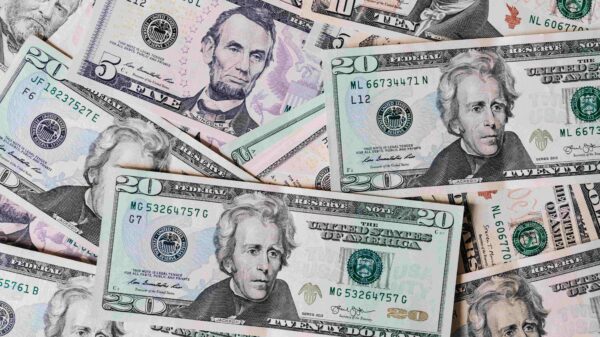Currency is a crucial element of human interactions. From bartering to gift economies to paper money, currency helps people exchange goods we can use however we want. Paper money has had a long ride as the primary means of exchange across countries and cultures. Now that they’re gaining traction worldwide let’s see how cryptocurrencies compare to the traditional characteristics of money.
Durability
The first characteristic to consider when examining how cryptocurrency holds up against traditional money is durability. Physical currencies wear and tear. They’re also easier to steal than digital currency. Crypto doesn’t have that same vulnerability; it exists online on the blockchain, no matter how you access it. Of course, people can still steal crypto. The advantage there is you can track crypto transactions. If you fall for a crypto scam, you either know or can find out where your money went. And if your hardware wallet is wearing down, you can transfer its contents to another. The money itself is still safe from damage.
Portability
One benefit crypto has against fiat is portability. Unlike paper money, crypto isn’t with you physically; it exists digitally and can be transferred digitally to others through online exchanges. It’s also offline in that you don’t need access to a central bank or third party to use it. Since cryptocurrencies exist in each user’s digital wallet, you always know where it is. You also don’t need to worry about fitting coins and bills in your wallet. However, it does have downsides. If you have a hardware wallet and lose it or forget the password, you’ve lost access to all the money in there. The same goes for a software wallet. There’s no reason you’ll need a password to pull out a 10 dollar bill.
Divisibility
Cryptocurrency has apparent advantages over cash in this characteristic. Bitcoin is divisible down to one hundred millionths, so if you send someone 0.00008 BTC, they’ll know exactly how much they received. That is a considerable advantage over fiat currencies in facilitating payment because it eliminates change. No matter how much the item you’re paying for is, you can deliver precisely that amount. This is unique to crypto since fiat currencies depend on the change you’re carrying with you. If you’re trying to pay $2.14 and only have two dollar bills, you’ll have to find 14 cents. With crypto, you simply pay the amount you owe. Additionally, this is one of the characteristics that makes cryptocurrencies so appealing in a global economy. No matter the national currency, you can translate its value into crypto. Although even then, values may fluctuate.
Uniformity
The dollar is a fiat currency, meaning its value is backed by faith in the U.S. government that produces it. National currencies used to be supported by gold, but the 1970s said goodbye to that system. Its value is also uniform— a dollar is worth exactly one dollar, no more and no less. This point is essential compared to cryptocurrencies like Bitcoin, which fluctuate wildly. Today’s crypto value may be worth half of that by tomorrow. Even if you don’t hold any crypto today, you can be reasonably confident that tomorrow you will still be able to buy goods and services with your dollars as well as crypto. This certainty makes dollars far more stable than cryptocurrencies.
Limited supply
Unlike fiat currency, some cryptocurrencies are finite. There will only ever be 21 million bitcoins in existence. That means the cryptocurrency’s supply is limited, making it far more likely to hold its value over time than something like a dollar bill or euro note. You can argue it’s a good option for long-term savings or as collateral for a loan, but keep in mind that nothing is guaranteed. There are also thousands of cryptocurrencies. And different cryptocurrencies have different characteristics. Bitcoin is the most famous one. Dogecoin, another popular crypto, is the opposite. It was designed never to run out, and there will always be more– sort of like when governments print more money, except Dogecoin does it automatically. Ether also has an unlimited supply, but it has no transaction fees.
Acceptability
When we think about what makes currencies valuable, acceptance is one of their most essential characteristics. If you can’t pay for anything with your money, it’s not very useful. If some people or businesses refuse your money because they don’t accept it as valid, it doesn’t matter how valuable it is. So while cryptocurrency may make headlines today, its ability to be used in day-to-day transactions is still limited. However, the amount of businesses accepting crypto is growing. The underlying fault in cryptocurrencies comes from their main feature: they’re digital. It doesn’t matter if there’s widespread crypto adoption; you’ll always need digital elements to have any form of exchange. You can have billions in crypto, but you won’t be able to use them without access to a network.


























